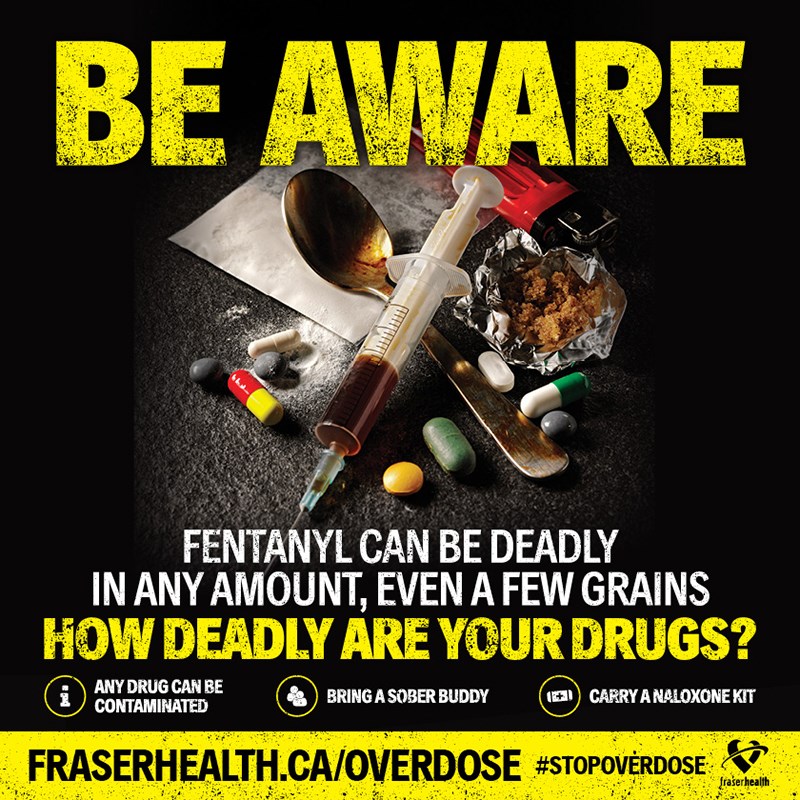A social media campaign that includes bus shelter advertising, posters in bars and restaurants, and messages on Facebook and Twitter is being launched in the next few weeks targeted to recreational and chronic drug users in the hopes of stopping the number of overdose deaths.
Fraser Health spokesperson Tasleem Juma said a sense of urgency is underlying the campaign, which also involves training people how to recognize an overdose and what to do about it.
"The April declaration of overdoses as a public health emergency brought some urgency to the situation. We're seeing this urgency because of increased overdose numbers, especially this year," Juma said.
The public relations campaign is part of a multi-pronged overdose response strategy, which also includes preventing substance use, identifying priority sites for safe supervised consumption services, informing different types of people who use drugs, working with municipalities and other agencies and improving access to opioid substitution therapy such as suboxone, according to Dr. Helena Swinkels, FHA medical health officer for the Tri-Cities area, in an email to The Tri-City News.
According to Swinkels, Eagle Ridge Hospital sees as many as four drug overdose cases in its emergency ward each week, and the number of overdose deaths was 10 by the end of June.
"Whether you are experimenting for the first time or regularly using illicit drugs, serious harm or death is a very real possibility each time you use. Opioid-related overdoses are on the rise, and increasingly involve fentanyl," Dr. Swinkels wrote.
Last year, there were 14 opioid drug overdose deaths in the Tri-Cities.
ADVICE TO DRUG USERS
Fraser Health advice to people who use drugs, and to their friends and families:
• If you are using drugs, do testers and go slow.
• If you are using drugs, have a buddy you can trust with you who is sober, able to recognize the signs of an overdose and willing to call for medical help if you need it.
• If you are using drugs alone, tell someone before you use, leave the door unlocked and have someone check on you.
• If you are using drugs, don't mix multiple substances, including alcohol. Mixing opioids with downers or with uppers puts you at higher risk of overdose.
• If you use drugs, you can find out how to access a take home naloxone kit through the BC Centre for Disease Control website through the Toward The Heart Program. The hashtag for the campaign is #stopoverdose.



